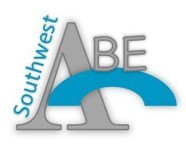- MN ABE Connect
- Archive
- Remote Testing – Building the Road While Driving on it!
 May 11, 2020
May 11, 2020
Remote Testing – Building the Road While Driving on it!
Marty Olsen, SW ABE Coordinator Linda Keller, Metro North Accountability CoordinatorAs COVID-19 began ravaging portions of the United States and causing schools to close down, adult ed test publishers were jumping into action, developing plans for remote testing to allow programs to maintain their standards.
OCTAE (Office of Career, Technical and Adult Education) met with the test publishers in April, and the publishers were invited to present their remote testing plans. Once these plans were approved, the publishers were given permission to put their plans into action.
Both CASAS and DRC (Data Recognition Corporation) are in the process of piloting their plans. For a program to become a remote testing agency, the state must first approve remote testing for Adult Education. Minnesota ABE has approved the use of remote testing. The program must also agree to follow publisher guidelines regarding:
- Student identification – ensure that student ID has been verified.
- Test security – follow guidelines to ensure that test questions remain secure.
- Remote proctor training – proctors must have completed training on the specifics of remote testing.
Remote Testing Benefits – What are the benefits of remote testing?
- It allows a program to continue services:
- Ability to post-test to achieve MSGs for current students
- Ability to pre-test new students, which provides:
- A baseline score for NRS reporting
- Placement information to guide instruction, either synchronous or distance learning
- A program can develop capacity to test distance learners, adding flexibility to the assessment plan.
- Remote testing is the wave of the future for distance learning.
Remote Testing Challenges – What challenges must be acknowledged in the implementation of remote testing?
- Proctor and student access to technology:
- Appropriate devices (smartphones are too small to display test questions)
- Internet bandwidth – possible competition with others in the household
- Student test environment may lack:
- Privacy
- A quiet place to test without distractions
- New procedures to learn and implement with multi-step processes for both proctors and students
- Proctor training is imperative!
- How to ensure test security
- Equity concerns: not all students will have the capacity to test remotely.
With these benefits and challenges in mind, CASAS, DRC (TABE) and Best Plus have moved forward with their plans to provide remote testing.
Below is an overview of the pilot plans for CASAS and TABE, as well as information about BEST Plus 2.0.
Want to learn more about remote TABE and CASAS testing?
If you want more in-depth information, join the state ABE staff and the state assessment trainers for a webinar, Remote TABE and CASAS Testing, on Friday, May 15, 10:00-11:30 AM. Register through the Events Calendar at atlasabe.org.
 CASAS (eTests) – www.casas.org
CASAS (eTests) – www.casas.org
The CASAS pilot plan is as follows:
Phase 1: Clinical tryouts and initial pilots – started April 20 (completed)
-
- Using ZOOM 1:1 (1 proctor to 1 test taker)
- Available to administer NRS approved pre- and post-tests
- Life & Work Reading
- Reading GOALS
- Math GOALS
Phase 2: Rollout to additional states and agencies – started May 4 (in progress)
-
- Continue activities from Phase 1
- Add Life & Work Listening
- Add additional platforms (e.g. Go To Meeting, Google Meet, WebEx)
- Pilot proctoring with more than one test taker (max 4 or 5)
Phase 3: Expansion (TBD)
-
- CASAS is exploring 3rd party vendors
- More options will continue to be added
How do we become a remote testing agency?
In order to become a remote testing agency, the program must complete the Going Live checklist. Additionally, the agency must complete and submit the Agency Remote Testing Agreement to CASAS. (Note: You must create an account and be logged in to the CASAS website in order to view the Agreement.)
If my agency has purchased CASAS eTests and set up our account, but we haven’t yet started administering eTests, are we eligible for eTesting remotely?
Yes, once the pilots are complete. CASAS recommends that agencies new to eTests familiarize themselves with some of their help documentation on eTests (even though they can’t test students in person at this time). However, remote testing will be easier for agencies that have some experience with CASAS eTests.
When can programs that don’t currently use eTests anticipate adding eTesting and become eligible for remote testing?
Typically, an eTesting account can be created in as few as 2-3 business days. An organization that wants to begin a CASAS eTests account should refer to the Going Live checklist for more information on the required online training and what to expect when implementing eTests. CASAS will be providing the remote testing guidelines and remote proctor training for all eTests customers in mid to late May, following the period of remote pilots.
 TABE 11&12 Online (DRC INSIGHT) – www.tabetest.com
TABE 11&12 Online (DRC INSIGHT) – www.tabetest.com
Due to COVID-19 and school closures, DRC knew that the pandemic was having a major impact on Adult Basic Education (ABE) programs across the country, and DRC wanted to provide information on new options they had recently developed.
In order to get programs started with a remote tool to provide more accurate placement into assigning online platforms coursework, DRC released the TABE online Locator as an unlocked test to be administered through the DRC InSIGHT portal that can be taken through a Google Chrome browser. DRC is working to quickly implement remote proctoring options for TABE 11&12 so that testing can continue for your adult education students during this time. Their new remote proctoring options are being rolled out in three phases, outlined below.
Phase 1: Remote Testing for TABE Locator (Available Now)
Starting the week of 4/27/20, DRC began providing an “unlocked” version of the DRC INSIGHT testing browser for the TABE Locator test. This means that students can take the TABE Locator test remotely (from home) via the Google Chrome web browser.
-
- Test registration and reporting for remote Locator testing will follow the same process as on-site testing, using the DRC INSIGHT Portal.
- Test administrators will need to provide each examinee with a Test Ticket username and password, just like they usually would for the Locator test. The Test Ticket contains the username and password the examinee will use to sign into their remote test.
- Students can access the TABE Locator test at https://wbte.drcedirect.com/TABE/#login. They must use a Google Chrome browser to access the Locator test.
- After completing the Locator test, programs can use the results to help inform instruction or to assist in placing students in distance learning programs. A pre-test should be given using TABE remote proctoring guidance as soon as possible after the Locator test is administered.
On TABEtest.com under Resources > TABE 11&12, DRC has also released a crosswalk of all TABE skills for each level, for each subject, in order to support instruction.
Phase 2: Remote Proctoring for TABE 11&12 via Web Conferencing System (Being piloted)
DRC is now supporting remote proctoring for TABE 11&12 through web conferencing platforms. This solution will allow existing TABE test administrators to remotely proctor live test sessions following explicit test examiner instructions via platforms like Zoom or WebEx, following DRC protocols.
-
- Remote proctoring for TABE is a secure, OCTAE-approved solution that can be implemented quickly and economically using proven online platforms.
- Test registration and reporting will continue to be done through the DRC INSIGHT Portal.
- Training for the new remote proctoring solution was provided starting the week of April 27. Detailed directions will be provided, and webinar training will be offered.
- WIOA-funded providers will need to confirm with their State Office of Adult Education regarding any local training requirements prior to testing.
Phase 3: Expanded Remote Proctoring Options (Longer Term)
Many ABE directors anticipate that their distance learning programs will continue to grow and have expressed interest in remote testing for the long term, beyond the current crisis. DRC is investigating additional third-party proctoring services that would allow us to expand our remote testing options for TABE in the long term. With third-party proctoring companies, the test registration, administration, and reporting services would be hosted/conducted through a third-party system (subject to OCTAE approval). More information will be provided in the coming weeks as DRC explores this option.
What is TABE 11/12 Online?
TABE online (through Data Recognition Corporation or DRC) delivers online testing for TABE 11&12 Series for the subjects of Reading, Math & Language on the DRC INSIGHT platform.
Who Can Use TABE Online?
To gain access to TABE online unlocked Locator, your program/agency needs to have access to the DRC TABE online portal through an account already established. If your program/agency already had an account created prior to COVID-19, you are set and further instruction on the next steps should have been provided to your POC (Point of Contact) from DRC in the last two weeks.
If your program/agency does not already have an existing online account established, your POC or Program Manager should contact the DRC Order Management Department: Shelf Customer Service at 800-538-9547 or [email protected]. New DRC INSIGHT Portal accounts require a minimum purchase of 500 TABE online subtests administrations.
Once an online account has been established, agency staff can access training materials at TABEtest.com > Resources tab > TABE 11&12 > Training; select the TABE 11&12 Online Training Videos as well as the TABE Online Quick Start Guide. Both of these documents will provide additional information that will be required prior to adding local staff access, creating test sessions in the portal for your program, etc.
What’s next?
For additional information on remote testing, go to the TABEtest.com site and select Resources > Remote Proctoring Guidelines and Remote Proctoring FAQs.
 BEST Plus 2.0
BEST Plus 2.0
What is BEST Plus 2.0?
BEST Plus 2.0 is an individually administered, face-to-face oral interview designed to assess the English language proficiency of adult English language learners, and is a combined test of listening and speaking skills. BEST Plus 2.0 software is required to be installed on a PC with Windows 10 installed. BEST Plus 2.0 provides a short, practical test that meets the accountability needs of programs that report to the National Reporting System (NRS). BEST Plus 2.0 is intended to assess interpersonal communication using everyday language used in practical situations. Test items reflect language used in everyday life in the U.S. – at home, at work, and in the community.
For additional information on BEST Plus 2.0, go to cal.org/aea/bp/tester. This link also provides staff training information, as well.
Who is eligible to do remote testing of BEST Plus 2.0?
Agencies who have current staff who were certified by CAL BEST Plus training staff (prior COVID-19 closures) to administer the test are also eligible to provide remote proctoring of BEST Plus 2.0 testing. Additional remote training is a requirement for currently trained staff.
What are the next steps in order to get started?
Contact [email protected] if you are considering virtual test administration of BEST Plus 2.0.


Newsletter Signup
Get MN ABE Connect—the official source for ABE events, activities, and resources!
Sign UpArticle Categories
- ABE Foundations/Staff Onboarding
- ACES/Transitions
- Adult Career Pathways
- Assessment
- CCR Standards
- Citizenship
- COVID-19
- Cultural Competency
- Digital Literacy/Northstar
- Disabilities
- Distance Learning/Education
- ELA
- Equity/Inclusion
- ESL
- HSE/Adult Diploma
- Listening
- Math/Numeracy
- Mental Health
- Minnesota ABE
- One-Room Schoolhouse/Multilevel
- Professional Development
- Program Management
- Reading
- Remote Instruction
- Science
- Social Studies
- Speaking/Conversation
- Support Services
- Teaching Strategies
- Technology
- Uncategorized
- Volunteers/Tutors
- Writing